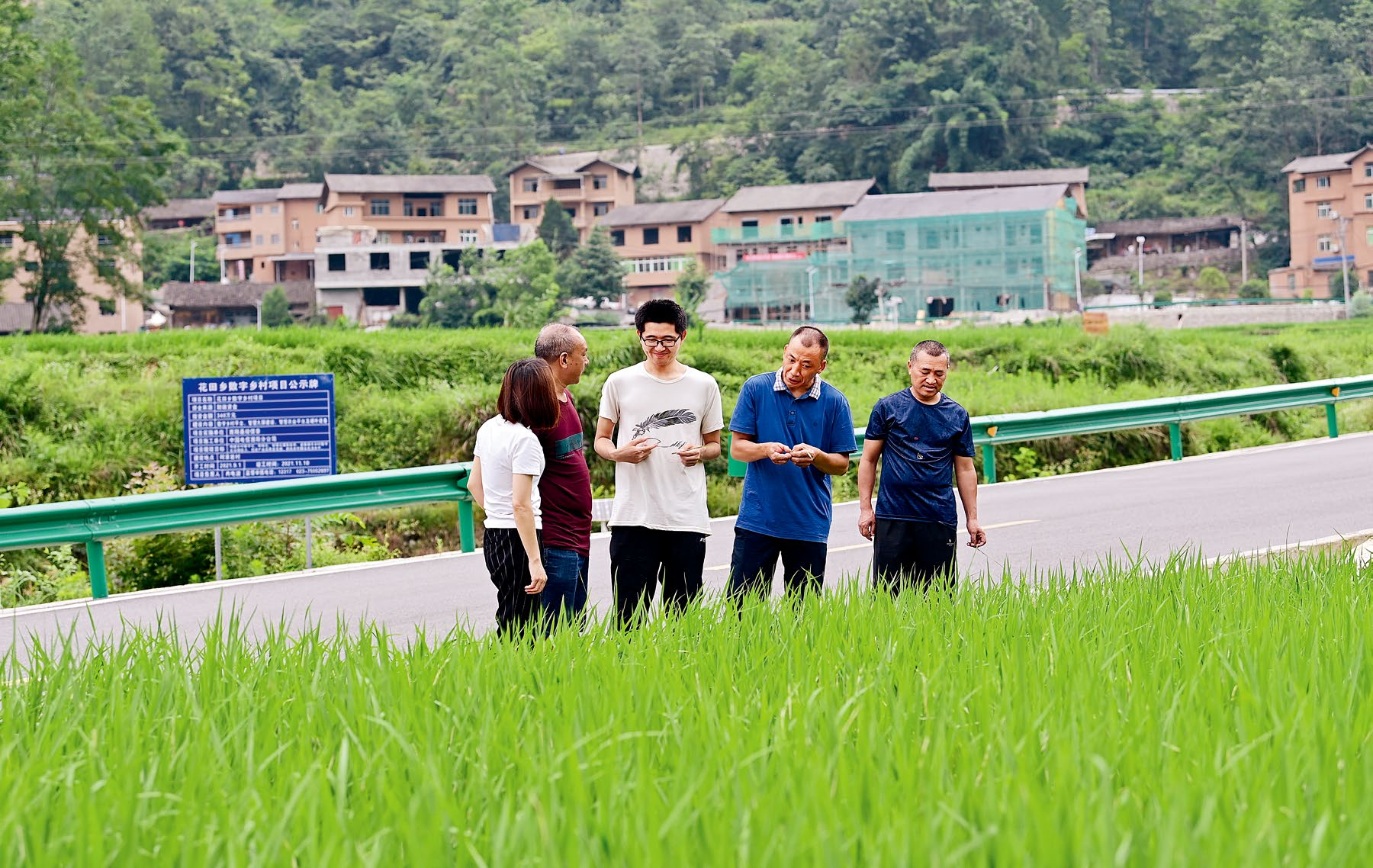Yunnan advances its distinctive agriculture

An aerial view of Nuozhadu Town, through which the ancient Tea Horse Road stretches, in Lancang Lahu Autonomous County, southwest China's Yunnan Province, March 9, 2024.
Yunnan Province vowed to accelerate the construction of a distinctive agricultural base, with top priority given to conservation of the environment and biodiversity, according to senior provincial officials on May 31, 2024.
"Distinctive, green and high-quality are the prominent labels of Yunnan's agriculture," Wang Xiangang, deputy secretary of the leading Party members group of Yunnan provincial government, said at a news conference held by the State Council Information Office in Beijing.
Wang said the province will encourage green planting and improve processing, cold chain, preservation and logistics, as well as better use technological tools to increase efficiency.
In 2023, the output value of Yunnan's key agricultural industries reached 2.5 trillion yuan, and that of processed agricultural products surpassed 1.4 trillion yuan, according to data from local authorities.
According to Wang, Yunnan grew 19 billion flowers last year, making it the largest fresh-cut flower production area in the world, and the Dounan Flower Market in the provincial capital Kunming has become a bellwether of flower trading around the globe.
Yunnan also leads the nation in tea leaf production area and volume. Additionally, it contributes 98% of China's coffee production, renowned as one of the most suitable areas in the world for coffee plantations. "The quality of Yunnan coffee is internationally recognized," Wang said.
The province has the most diverse types of fruits in China. Its yields of avocados and summer strawberries each account for 80% of the national total. It also produces more than 145 varieties of traditional Chinese herbal medicines, comprising half of the national pool.
The distinctive plateau agriculture has a solid foundation and promising development potential with ample room for growth, said Wang Yubo, governor of Yunnan, adding that it's currently at a critical juncture of transitioning from "being large" to "becoming robust."
He emphasized the key role of ecological conservation in the province's high-quality development.
"Good ecology is a precious treasure of Yunnan and the country and should be protected from generation to generation," he said, adding that the province will spare no effort to protect each mountain, forest, lake and river.
Wider cover promises food security

Photo taken on July 14, 2023 shows agricultural technicians advising villagers on preventing and controlling diseases and pests in rice crops at Hejiayan Village, Huatian Township, Youyang Tujia and Miao Autonomous County, southwest China's Chongqing Municipality.
China will intensify efforts to implement the full-cost insurance and planting income insurance for rice, wheat and corn nationwide, to benefit farmers and improve agricultural security, government officials said on May 31, 2024, at a press conference in Beijing.
Full-cost insurance for the three primary food crops — rice, wheat and corn — is an agricultural insurance policy that encompasses all production costs, including expenses related to materials, land and labor.
Planting income insurance is designed to reflect the value of agricultural products based on their yields and market prices, thereby insuring the income derived from cultivating these crops.
Vice Finance Minister Liao Min said the country will further utilize experiences related to those insurance policies accumulated in the past. It will also strengthen coordination of different government departments and improve services at grassroots level to better implement those policies nationwide. The country will intensify supervision and increase fiscal support in this regard, he said.
"The coverage expansion of the two insurance programs nationwide marks an important milestone in the development of China's agricultural insurance sector and will help stabilize incomes of rural households and secure food security," Liao said. "We will make joint efforts to ensure the insurance policies are thoroughly implemented."
Liao further said an initial analysis of the major grain-producing counties where the insurance programs were implemented has been completed. The areas have seen an average increase of 48% in insurance coverage for the three main staples in the past three years.
The Finance Ministry launched an agricultural insurance premium subsidy policy in 2007. It has so far provided more than 300 billion yuan (41.4 billion U.S. dollars) in such subsidies, with an average annual growth of 22%. This year, China has set aside a budget of more than 20 billion yuan for supporting the rice, wheat and corn insurance programs, Liao said.
According to him, such subsidies are fully in line with the rules of the World Trade Organization, and China's practices can prove a valuable reference in the formation of international rules.
Yin Jiang'ao, director of the Property and Casualty Insurance Supervision Department at the National Financial Regulatory Administration, said China has made significant achievements in developing agricultural insurance. There is, however, still room for improvement in terms of expanding insurance coverage and raising the level of food security, he added.
Yin said China will strive to make the pricing of agricultural insurance more scientific and accurate and promote the standardized development of the insurance products. Efforts will be made to launch online insurance services, thus lowering operating costs and improving customer experience.
From January to April, insurers paid out 29.4 billion yuan in agricultural insurance compensation, up 8% year on year, benefiting 8.13 million rural households.

